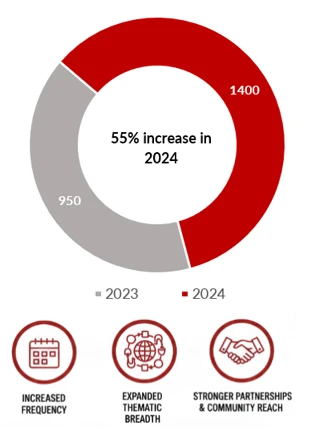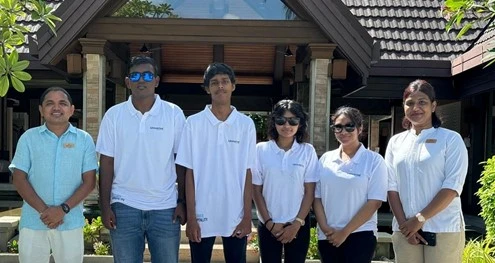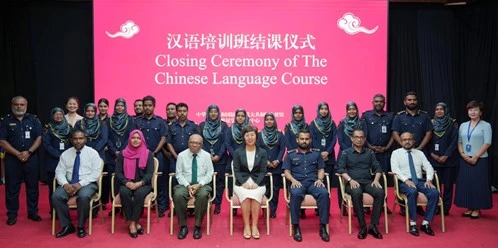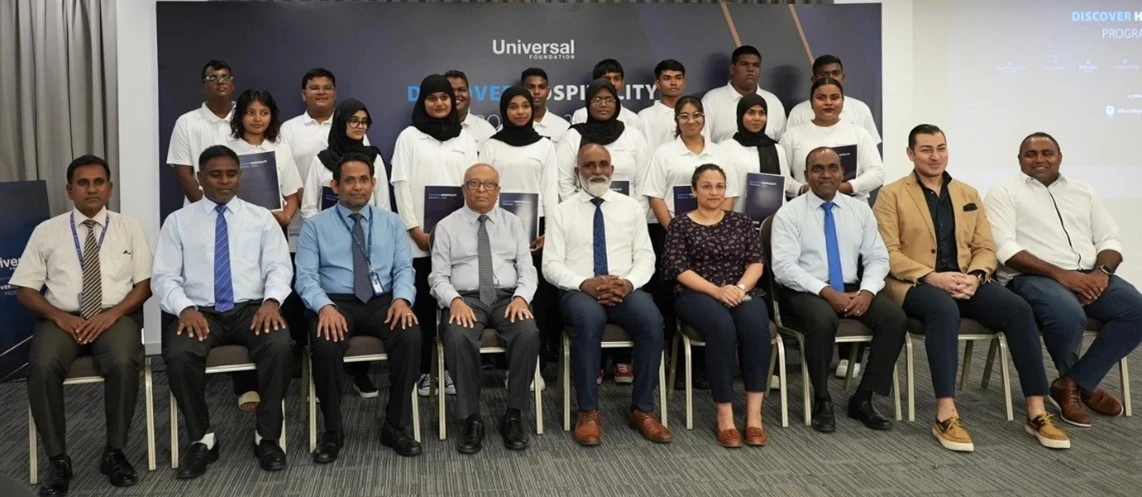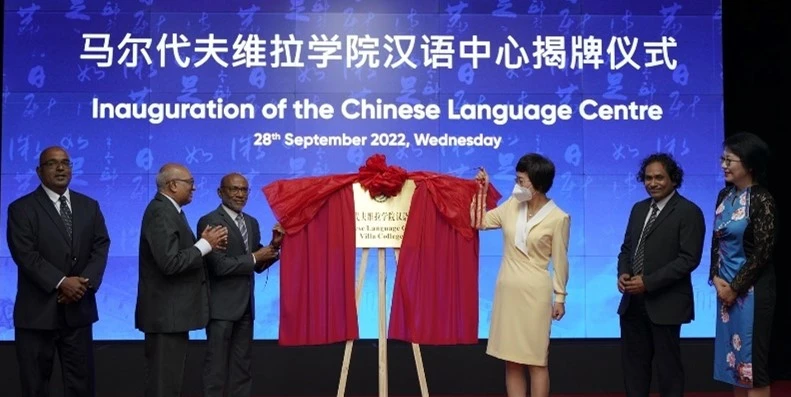Chinese Language Training:
Chinese Language Training at √‹Ő“ ”∆Ķ, delivered through the Chinese Language Centre, continued to grow in 2024 as a key component of the institution‚Äôs commitment to promoting multilingual proficiency and cross-cultural competencies in the Maldives. The Centre‚Äôs initiatives directly support SDG 4: Quality Education and SDG 17: Partnerships for the Goals, by expanding access to non-formal language education that enhances both personal and professional opportunities. In 2024, the Centre conducted a total of 17 structured, non-credit-bearing language courses, designed to cater to a diverse range of learners‚ÄĒincluding public participants, school students, and professionals from government and private sector organizations. These courses were offered across multiple levels and formats, including: HSK Level 1 & 2: Introductory and basic proficiency training in Mandarin Chinese aligned with the H√†ny«Ē Shu«źp√≠ng K«éosh√¨ (HSK) international standard; Business Chinese & Travel Chinese: Purpose-driven modules tailored for professionals seeking workplace fluency or basic communication skills for international travel and tourism contexts.
As part of √‹Ő“ ”∆Ķ‚Äôs expanding commitment to multilingual education and cultural exchange, the Chinese Language Centre continued to deliver elective Chinese language courses to students at Villa International High School (VIHS) throughout 2024. These non-credit-bearing, vocational-style electives are designed to equip secondary-level students with foundational skills in Mandarin Chinese, while also fostering intercultural understanding and global citizenship‚ÄĒclosely aligned with SDG 4 (Quality Education) and SDG 17 (Global Partnerships). In a major milestone for the programme, the 10 students enrolled in the VIHS Chinese Language Elective departed in late 2024 on a cultural and language exposure trip to China, organized jointly by the Chinese Language Centre and Chang'an University. In 2024, the Chinese Language Centre at √‹Ő“ ”∆Ķ successfully conducted a specialised Chinese language training course for officers of Maldives Immigration. This programme reflected national efforts to enhance language capacity within key frontline public service institutions and is aligned with √‹Ő“ ”∆Ķ‚Äôs strategic contributions to SDG 4 (Quality Education) and SDG 17 (Partnerships for the Goals).
The Chinese Language Centre at √‹Ő“ ”∆Ķ remains committed to providing high-quality, demand-driven language training to support public sector excellence and strengthen the Maldives‚Äô readiness for international engagement. Similar programmes continue to be offered to government agencies and the general public, reinforcing the Centre‚Äôs role as a national hub for vocational language education. In total, over 100 learners participated in Chinese Language Centre courses in 2024, contributing to a growing pool of Chinese-speaking professionals and students in the Maldives. By delivering practical, culturally immersive training, the Centre plays a pivotal role in strengthening international cooperation, fostering cultural understanding, and enhancing the linguistic readiness of the Maldivian workforce for global engagement.
Corporate Training:
In 2024, the Institute for Research and Innovation (IRI) at √‹Ő“ ”∆Ķ played a leading role in advancing vocational and professional skills development across the Maldives by designing and delivering a wide portfolio of high-impact corporate training programmes. Demonstrating its commitment to lifelong learning and workforce empowerment, IRI conducted over 40 structured training sessions throughout the year, targeting both the public and private sectors, as well as individual learners from diverse professional backgrounds. The training calendar featured a combination of recurring core modules and specialised, client-driven courses, tailored to institutional needs and national capacity-building priorities. Among the most frequently requested
and implemented sessions were Project Management, Advanced Excel, Public Speaking, and Training of Trainers (TOT)‚ÄĒall of which addressed essential workplace competencies in administration, digital productivity, and communication. Each programme was designed to be highly practical, participatory, and workplace-relevant, with courses ranging in length from one-day workshops to intensive multi-day modules. Participants included major government institutions, state-owned enterprises, and corporate organisations, such as the Bank of Maldives, Housing Development Corporation, Fuel Supplies Maldives, Attorney General‚Äôs Office, and Fenaka Corporation.
One of the standout highlights of the year was the Cybersecurity training delivered to STELCO, which recorded the highest single-session attendance for the year, with 61 participants. This full-day workshop addressed critical topics such as data protection, cyber hygiene, and secure digital practices for the workplace. The training was designed in response to the growing need for digital literacy and information security across utility and infrastructure sectors. In addition to high-volume programmes, IRI also delivered several customised sessions such as Emotional Intelligence at Work, Public Speaking (Dhivehi ‚Äď Basic and Advanced), and AutoCAD for Beginners further broadening its thematic scope. Courses were offered both at √‹Ő“ ”∆Ķ campuses and on-site at client locations, depending on institutional preference and logistical needs. The Centre for Foundation Studies at √‹Ő“ ”∆Ķ, in collaboration with the STO Recreation Club, successfully conducted a 19-hour Basic Photography Training Programme. The training was specifically designed for employees of the State Trading Organization (STO). The programme provided participants with foundational knowledge and hands-on experience in areas such as camera handling, composition, lighting, and basic image editing. Over the two weeks, participants showed notable progress in both technical and creative aspects of photography. Through this extensive programme delivery √‹Ő“ ”∆Ķ continues to serve as a central hub for vocational excellence, capacity development, and professional upskilling in the Maldives. All corporate training activities conducted were non-degree, non-credit-bearing, and open to the general public or institutional nominees. The success of these programmes reaffirms √‹Ő“ ”∆Ķ‚Äôs pivotal role in strengthening national human capital and promoting inclusive access to lifelong learning.
